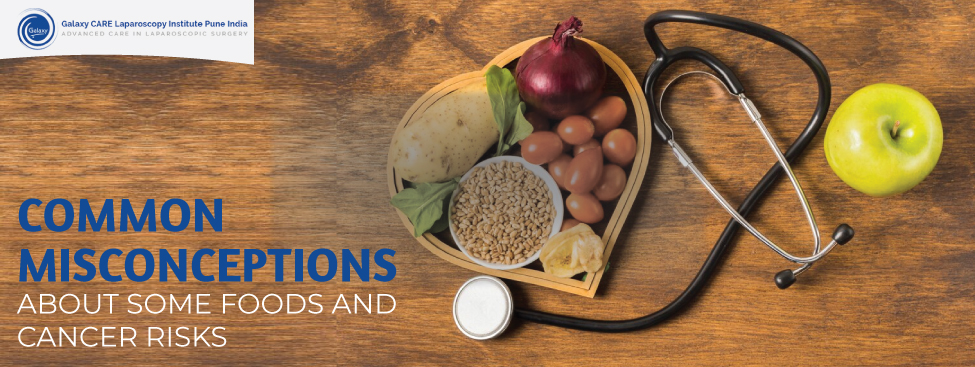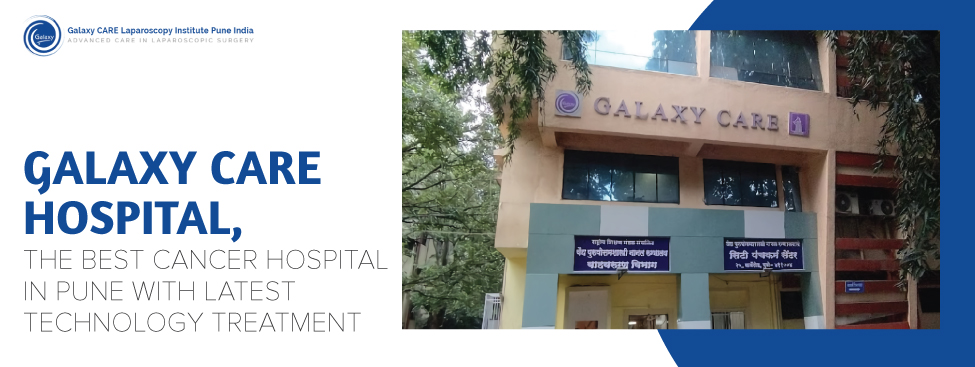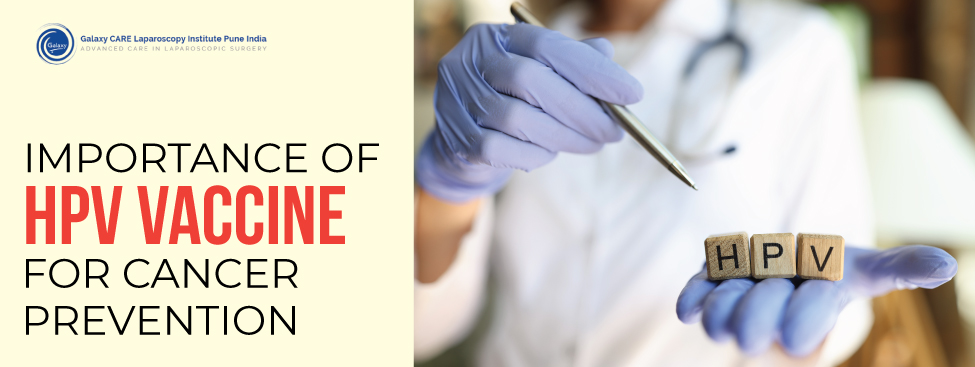
COMMON MISCONCEPTIONS ABOUT SOME FOODS AND CANCER RISKS
In today’s era, people are much more health conscious and aware of factors affecting cancer risk. Diet and nutrition play an important role in reducing cancer risk. However, the widespread availability of information has also led to many misconceptions regarding links between certain foods and cancer. As Galaxy Care Hospital, the Best Cancer Hospital in Pune, we aim to provide patients with evidence-based information regarding cancer risks and prevention. In this blog, we discuss five common misconceptions about the relationship between some foods and cancer risks.
Misconception 1: Sugar directly causes cancer
One widely believed myth is that sugar directly causes cancer. While excessive sugar intake has been linked to health issues like obesity, diabetes and inflammation, its role in cancer is complex. Cancer cells use glucose for growth and multiplication, fueling the idea that sugar causes cancer. However, cancer development is influenced by several factors such as genetics, lifestyle and environment. Rather than avoiding sugar, maintaining an overall balanced diet with a moderate intake of sugary foods and beverages can help lower cancer risk. Cancer risk depends more on overall dietary and lifestyle patterns than any single food. We highly recommend consulting the Best Cancer Specialist in Pune, if you are a diabetic with cancer symptoms.
Misconception 2: All processed meats are equally carcinogenic
Processed meats like ham, sausage and hot dogs have been classified as carcinogenic by WHO. However, not all processed meats pose the same level of risk. The risk depends on factors like processing methods, preservatives used and the amount consumed. Highly processed meats with preservatives like bacon, and hot dogs carry higher risks than processed meats with fewer additives. Cooking methods that produce chemicals like heterocyclic amines during high-temperature cooking of meats also affect cancer risks. Moderation and choosing leaner processed meat variants can help lower risks.
Misconception 3: Superfoods alone can prevent cancer
Certain foods labelled ‘superfoods’ like berries, ginger, turmeric etc. are touted for their anti-cancer properties. While they contain beneficial plant compounds, no single food or nutrient can alone prevent or treat cancer. Cancer is influenced by several genetic and lifestyle factors. Focusing only on individual superfoods may give a false sense of protection. A balanced diet including a variety of fruits, vegetables, whole grains, lean proteins along with other healthy lifestyle practices collectively lower cancer risks than any single food. Consult the Best Oncologist in Pune to adopt a personalized cancer prevention diet.
Misconception 4: Organic foods are completely risk-free
While organic foods expose consumers to fewer pesticides and chemicals, their health impacts should not be overestimated. Factors like genetic predisposition and lifestyle play a more important role in cancer risk than food labels alone. An organic diet is not a “pass” to ignore other health behaviours. Moderation and balance are key.
Misconception 5: Genetically modified foods cause cancer
No scientific evidence directly links genetically modified (GM) crops with cancer in humans. Factors that affect cancer risk are broader lifestyle choices rather than single foods. While the long-term impact of GM foods needs monitoring, avoidable risks like tobacco remain more immediately actionable.
The Bottom Line
In conclusion, cancer risks depend on multiple dietary and non-dietary factors rather than single foods. Rather than quick-fix approaches targeting consumption or avoidance of isolated foods, adopting an overall healthy lifestyle through balanced nutrition, fitness and stress management, in the long run, can significantly contribute to lowering cancer risks. We encourage patients to discuss their concerns with the Best Cancer Specialist in Pune and make well-informed choices factoring in their complete medical profile, not just focusing on single foods or extreme dietary restrictions.
At Galaxy Care Hospital, our expert Oncologists in Pune focus on identifying modifiable risk factors through personalized evaluation and counselling to help lower cancer risks in patients through an evidence-based approach. Our aim through this blog was to clear common misperceptions and guide readers towards a balanced, fact-based understanding of the relationships between diet, lifestyle and cancer risk. For any queries related to cancer screening, diagnosis or treatments, please get in touch with us at Galaxy Care Hospital. We are here to help you with everything related to cancer care!


